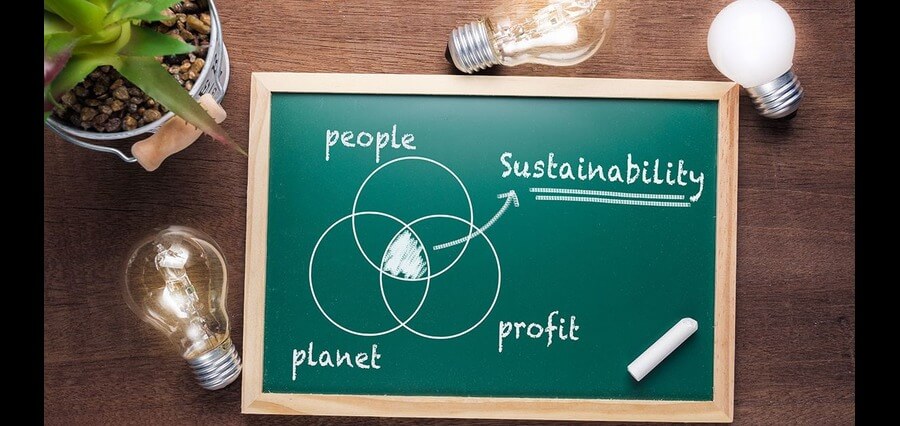In recent years, there has been a significant shift in the way business enterprises approach their objectives. Increasingly, companies are recognizing the importance of integrating sustainability into their core strategies and operations. Sustainability, often defined as meeting the needs of the present without compromising the ability of future generations to meet their own needs, has become a critical focus for businesses worldwide. With a growing number of business organizations stepping in the movement, let us explore how business enterprises are changing towards sustainability objectives, the reasons behind this transformation, and the benefits it brings.
Evolving Consumer Demands
One of the primary drivers behind the shift towards sustainability objectives is the changing expectations of consumers. Modern consumers are more conscious of the environmental and social impact of their purchases. They seek products and services that are environmentally friendly, ethically sourced, and contribute positively to society. Business enterprises recognize the importance of aligning their offerings with consumer values to remain competitive and attract a growing base of socially responsible customers.
Regulatory Pressure and Compliance
Governments and international organizations are implementing more stringent regulations to address environmental and social issues. Compliance with these regulations is not only a legal requirement but also essential for maintaining a positive reputation and avoiding potential financial penalties. By adopting sustainability objectives, businesses can demonstrate their commitment to responsible practices and ensure compliance with evolving regulatory landscapes.
Reducing Environmental Footprint
Organizations today are becoming increasingly aware of their environmental impact and are taking steps to reduce their carbon footprint. Sustainability objectives often include initiatives to minimize greenhouse gas emissions, reduce water and energy consumption, and limit waste generation. These efforts not only contribute to environmental preservation but can also lead to cost savings and operational efficiencies.
Attracting and Retaining Talent
Younger generations entering the workforce, such as Millennials and Gen Z, are more attracted to companies that have a strong commitment to sustainability. These employees seek purpose-driven work environments and want to be part of organizations that make a positive impact on society and the environment. By adopting sustainability objectives, businesses can attract and retain top talent, creating a more engaged and motivated workforce.
Enhancing Brand Reputation
The reputation of a business has a direct impact on its success. Consumers are more likely to trust and support companies that are perceived to be socially and environmentally responsible. Sustainability initiatives enhance brand reputation and can lead to increased customer loyalty and advocacy. A positive brand image also opens up opportunities for partnerships and collaborations with other like-minded organizations.
Long-Term Business Resilience
One of the key aspects of sustainability objectives promote long-term business resilience. By addressing environmental and social risks, businesses can mitigate potential disruptions and maintain continuity in the face of challenges. Sustainable practices enable companies to adapt to changing market conditions and consumer preferences, positioning them for long-term success in an ever-evolving business landscape.
Encouraging Innovation
Sustainability objectives drive innovation within business enterprises. As companies strive to become more sustainable, they seek new technologies, processes, and business models that reduce environmental impact and improve social outcomes. This focus on innovation can lead to competitive advantages and market differentiation, enabling businesses to stay ahead in a rapidly changing world.
Building Stronger Stakeholder Relationships
The objectives involve engaging with a diverse set of stakeholders, including customers, employees, suppliers, investors, and local communities. By actively listening to and collaborating with these stakeholders, businesses can build stronger relationships and create a sense of shared purpose. This engagement fosters trust and transparency, making stakeholders more supportive of the company’s objectives.
Supply Chain Sustainability
Business enterprises are increasingly extending their sustainability objectives to their supply chains. This approach involves assessing and improving the environmental and social practices of suppliers and partners. By promoting sustainability across the entire supply chain, companies can have a more significant impact on global sustainability challenges and foster positive change throughout their industry.
Contributing to the United Nations SDGs
The United Nations’ 17 Sustainable Development Goals (SDGs) provide a global framework for addressing urgent environmental, social, and economic challenges. Many businesses are aligning their sustainability objectives with specific SDGs, contributing to broader efforts to achieve a more sustainable world by 2030. This alignment not only reinforces a company’s commitment to global goals but also provides a clear roadmap for its sustainability initiatives.
Towards a Better Future
Business enterprises are embracing sustainability objectives as an integral part of their strategies and operations. Evolving consumer demands, regulatory pressures, and a desire to reduce environmental footprints are driving this transformation. Adopting sustainability objectives has numerous benefits, including attracting socially conscious consumers and talented employees, enhancing brand reputation, and fostering long-term business resilience. Moreover, companies are recognizing the importance of engaging with stakeholders and promoting sustainability throughout their supply chains.
The shift towards sustainability objectives is not only a responsible business practice but also a strategic imperative for long-term success. As more businesses embrace sustainability, they play a vital role in addressing global challenges and contributing to a more sustainable and equitable world. By aligning their objectives with the United Nations’ Sustainable Development Goals, business enterprises are joining a global movement towards creating a brighter and more prosperous future for generations to come.





